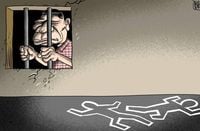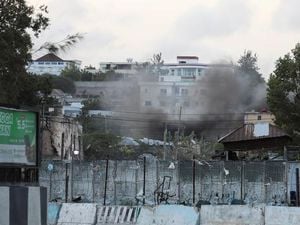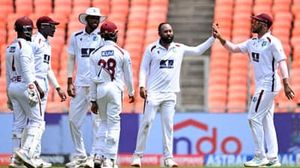It’s a political and legal drama that has gripped the Philippines and reverberated far beyond its shores: the fate of former President Rodrigo Duterte, now 80, detained in The Hague and facing trial at the International Criminal Court (ICC) for alleged crimes against humanity. With the Philippine Senate’s recent call for his house arrest, a swirl of legal maneuvering, political symbolism, and deep public division has come to the fore, revealing the enduring influence of the Duterte family and the complex legacy of his controversial war on drugs.
On October 5, 2025, the Philippine Senate passed Resolution No. 144, with 15 senators voting in favor, three against, and two abstaining. The resolution, while not binding on the ICC, formally requested that Duterte be placed under house arrest, citing his advanced age and reported health issues. According to BusinessWorld, the move was not expected to sway the ICC, which is under no obligation to heed the request, but it did highlight the former president’s continued sway in Congress and the political alignment with his daughter, Vice-President Sara Duterte-Carpio—a likely contender in the 2028 presidential race.
Senate Resolution 144, as reported by Philippine Daily Inquirer, was framed as a humanitarian gesture. The senators invoked the International Covenant on Civil and Political Rights, emphasizing that “all persons deprived of their liberty shall be treated with humanity and with respect for the inherent dignity of the human person.” The resolution specifically requested that Duterte be allowed to return to his home in Davao City if a medical examination determined that his detention at the ICC facility would further worsen his condition. The senators cited Vice President Sara Duterte’s statement that her father was found unconscious in his cell on September 27, 2025, though the ICC has neither confirmed nor denied the incident, maintaining strict confidentiality regarding detainees’ health.
Critics, however, argue that the Senate’s plea is more about political posturing than genuine humanitarian concern. As human rights lawyer Kristina Conti told Panay News, the resolution is “self-serving,” especially since one of its sponsors, Senator Ronald “Bato” dela Rosa, is a potential co-respondent in the ICC case. The list of senators supporting the resolution—Alan Peter Cayetano, Migz Zubiri, Bato Dela Rosa, JV Ejercito, Jinggoy Estrada, Win Gatchalian, Bong Go, Ping Lacson, Loren Legarda, Rodante Marcoleta, Imee Marcos, Robin Padilla, Erwin Tulfo, Joel Villanueva, and Mark Villar—reads as a roll call of Duterte’s political allies.
The real-world impact of the resolution is limited. As Arjan P. Aguirre, a political science lecturer at the Ateneo de Manila University, explained to BusinessWorld, “The resolution has no real effect on the ICC but is symbolic posturing that speaks volumes about the Duterte bloc’s ability to rally allies.” He added, “This is meant to intimidate the Marcos-Romualdez camp, sending the message that the Senate won’t cower to the President’s wishes.”
Beyond the Senate’s actions, the Duterte family has gone on the offensive. On October 2, 2025, Acting Davao City Mayor Sebastian “Baste” Duterte filed a disbarment complaint against Justice Secretary Jesus Crispin Remulla and Defense Secretary Gilbert Teodoro, along with other senior officials, alleging they orchestrated the “illegal arrest and forced transfer” of the former president to the ICC. According to SunStar, the complaint, submitted to the Integrated Bar of the Philippines, accuses the officials of violating the 1987 Constitution and the Code of Professional Responsibility and Accountability for lawyers. Duterte’s legal counsel, Atty. Israelito Torreon, described the incident as “illegal arrest and extra-judicial rendition,” asserting that officials “exceeded their authority and violated the former president’s constitutional rights.”
This legal battle is unfolding against the backdrop of the ICC’s ongoing investigation into Duterte’s anti-drug campaign—a campaign that, according to police, resulted in more than 6,200 deaths during police raids, but which critics claim led to as many as 30,000 deaths in suspicious circumstances. The ICC’s July 4, 2025, charging document describes the killings as “widespread and systematic,” planned and executed as state policy, and constituting an “attack against the civilian population in the Philippines.” The charges cover murders attributed to the so-called Davao Death Squad from 2013 to 2016, executions of “high-value targets” from 2016 to 2017, and dozens of deaths during village raids from 2016 to 2018.
The ICC prosecutor has made it clear that Duterte, as a co-perpetrator, “made an essential contribution to crimes” by “creating and maintaining a system in which perpetrators knew they would be protected, including through promises of immunity and shielding perpetrators from investigation and prosecution.” The court has jurisdiction over these alleged crimes, despite the Philippines’ 2019 withdrawal from the ICC’s founding Rome Statute, as the alleged offenses took place while the country was still a member.
Meanwhile, Duterte’s defense has focused on claims regarding his health. His British-Israeli lawyer, Nicholas Kaufman, is reportedly receiving a hefty professional fee of $2.5 million per month, or more than ₱144 million at current exchange rates, according to Panay News. Kaufman’s legal strategy has been characterized by efforts to delay or postpone the trial, with repeated assertions that Duterte is mentally and physically unfit to stand trial—claims that led to the postponement of proceedings. Yet, these assertions are contradicted by reports from Duterte’s estranged wife, Elizabeth Zimmerman, and granddaughter Isabelle Duterte, who visited him on September 23, 2025, and found him “very well.”
Human rights advocates have been quick to point out the contrast between the Senate’s concern for Duterte’s dignity and the lack of similar compassion for the thousands of victims of extrajudicial killings during his presidency. As lawyer Gilbert Andres and Carlos Conde, both human rights advocates, reminded the public during Conde’s “Open Talk” on October 2, “Always keep Duterte’s victims in mind.”
Adding to the drama, the legal complaint against top justice and defense officials has potential implications for their careers. Justice Secretary Remulla, for instance, is reportedly eyeing the position of Ombudsman, but Judicial and Bar Council rules require candidates to have no pending cases. The complaint also deepens the political rift between the Duterte camp and the Marcos administration, with President Ferdinand Marcos Jr. having previously declared that the Philippines “will not cooperate” with the ICC.
For now, the ICC’s standards—and not domestic political calculations—will determine Duterte’s fate. The court, bound by international law and its own procedures, will weigh the evidence and arguments, including any claims regarding the former president’s health. Whether Duterte is eventually released on humanitarian grounds or faces the full weight of international justice, the case has already left a profound mark on the Philippines, exposing enduring divisions and forcing a reckoning with the past. The coming months promise more legal and political twists as the nation—and the world—watches closely.




